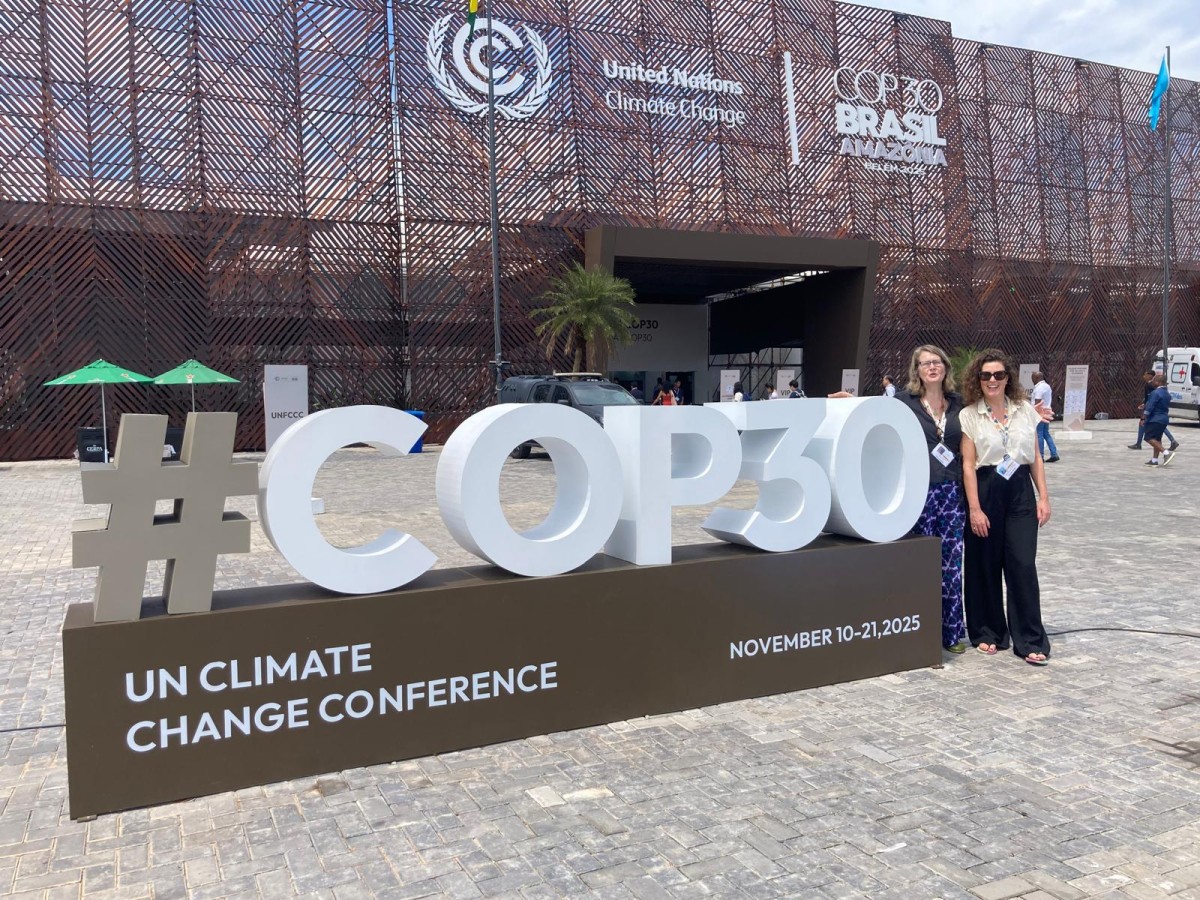COP30 showed: only through cooperation can we truly tackle the water crisis
The world can no longer afford to treat water as an afterthought. Without access to drinking water and sanitation, no climate plan is complete. This was the message that development organisations worldwide, including Simavi, recently brought to Belém, where the annual climate summit was held.
For me personally, COP30 felt like a turning point. Not only because of its location in the heart of the world's largest rainforest, and the space provided for people from communities hit hardest by the climate crisis, but also because of the power of collaboration I experienced there. This was entirely in line with the Brazilian concept of Mutirão, a collective effort based on solidarity.

A victory for water
Our main focus was to embed robust water and sanitation indicators in the Global Goal on Adaptation (GGA). This goal is essential: it will determine how countries will shape and finance their adaptation policies over the next ten years. Without water firmly anchored in this goal, millions of people will remain vulnerable. The good news is: we succeeded. The final COP30 agreement contains the most robust WASH indicators yet – including language on gender, human rights, and the communities most affected.
More importantly, measurement mechanisms have now been agreed upon for financing, capacity building, and technology transfer. This creates, for the first time, a global framework to truly track water progress and support countries.
Against the mainstream
I wish I could be as positive about the rest of the agreements, but unfortunately, I'm not. Adaptation funding will be tripled, but only in 2035 and without a clear basis. And once again, the world was afraid to say what's really needed: a phase-out of fossil fuels.
What struck me most in Belém, therefore, wasn't the outcome of the negotiations, but the power of collaboration. Organisations from Bangladesh, Brazil, Uganda, the United Kingdom, and the Netherlands stood side by side. Young people, with the help of WaterAid, collected 36,000 signatures for the Water Can't Wait campaign.

'Once again, the world was afraid to say what's really needed: a phase-out of fossil fuels.'
Simavi is joining WaterAid
That's precisely why I'm proud that Simavi is joining the WaterAid federation, a global organisation promoting clean water, decent toilets, and good hygiene for all, and will continue as WaterAid Netherlands from March 22, 2026. By joining a global movement active in 22 countries, we strengthen our impact and structurally elevate water justice to the global agenda.
Power in collaboration
COP30 gave us a breakthrough, but also a warning. Politics is shifting, hesitating, and faltering. Multilateralism is under pressure. But every step forward that was taken was because we acted together.
The world cannot waste another decade without putting water at the heart of climate policy. Neither can we. As WaterAid Netherlands, we will continue—stronger, more effective, more determined. Because change starts with water.
Veerle Ver Loren van Themaat, Director Simavi
This article was originally published on Vice Versa


